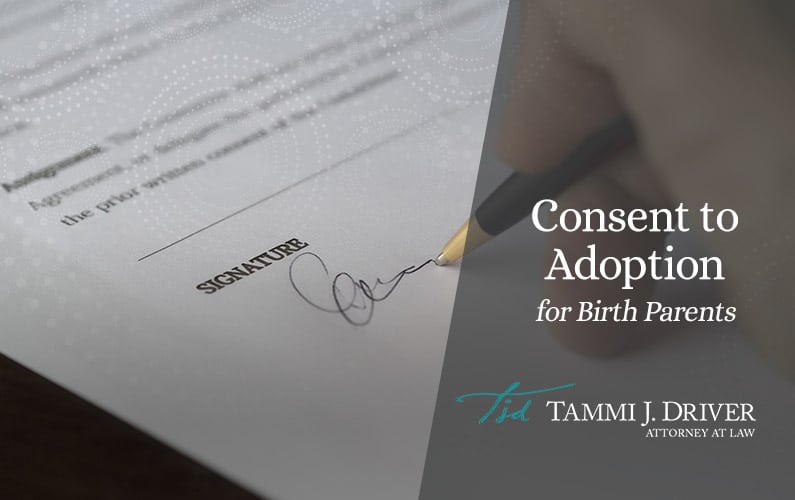

Adopting a child is a rewarding experience. The process can be complicated, so being fully informed about the laws surrounding birth parents is crucial.
The rights of birth parents are some of the most protected in the United States of America. Except for a small number of special cases, birth parents must consent to the adoption. This rule applies to both independent and agency adoptions.
Below is information that will help you understand the process of consent to adoption and resources to help you along the way.
When a birth parent consents to an adoption, they are agreeing to terminate their parental rights and relinquish their child to another family. Therefore, they are no longer responsible for the duties that accompany parental rights or responsibilities.
Most states require this step to be official in writing. The document that terminates parental rights also needs to be witnessed and notarized or executed before a judge or another appropriate official. Until the birth parents take this step, they hold the primary right of consent to the adoption. However, this process is not applicable if a court terminated the parental rights of one or both birth parents.
Things are slightly different in the case of unwed fathers. Laws regarding unwed fathers vary by state; however, in most states, if an unwed father doesn’t file a paternity claim, he will lose his right to consent. Similarly, if an unwed father does not respond to an adoption notice, he may lose his right to consent.
When going through this process, pay attention to your state’s specific laws regarding the timing of consent. Some states do not have a waiting period after the birth of the child. Other states may require a waiting period of 24, 48 or 72 hours after the birth of the child.
There are also laws regarding the revocation of consent. In some states, such as Florida, the consent is irrevocable for a child younger than six months of age unless the birth parent can prove in court that the consent occurred through fraud or while under duress. Much like the timing of consent, these laws vary from state to state.
This process may vary depending on the state of your residence. It is most common for states to require some counseling for the birth parents while ensuring they are aware of their rights. While not often required by state law, best practice is that the birth parent has an attorney at the time of signing the consent. State laws also vary when the parent is a minor.
For more information regarding consent to the adoption process, you’ll need to talk to a lawyer that you can trust. Call Tammi Driver at 727-800-6681.